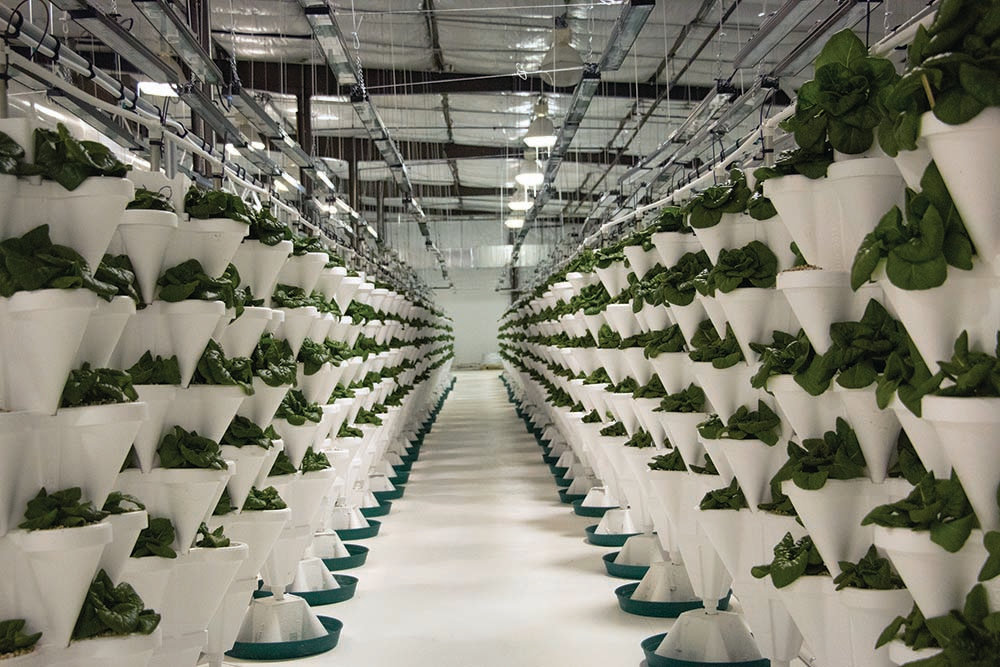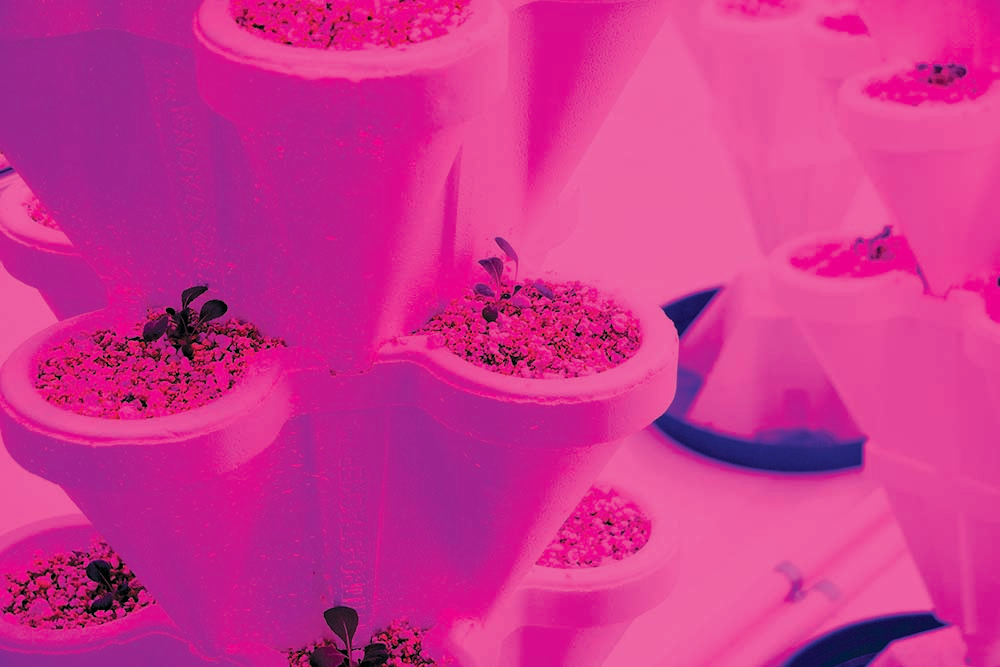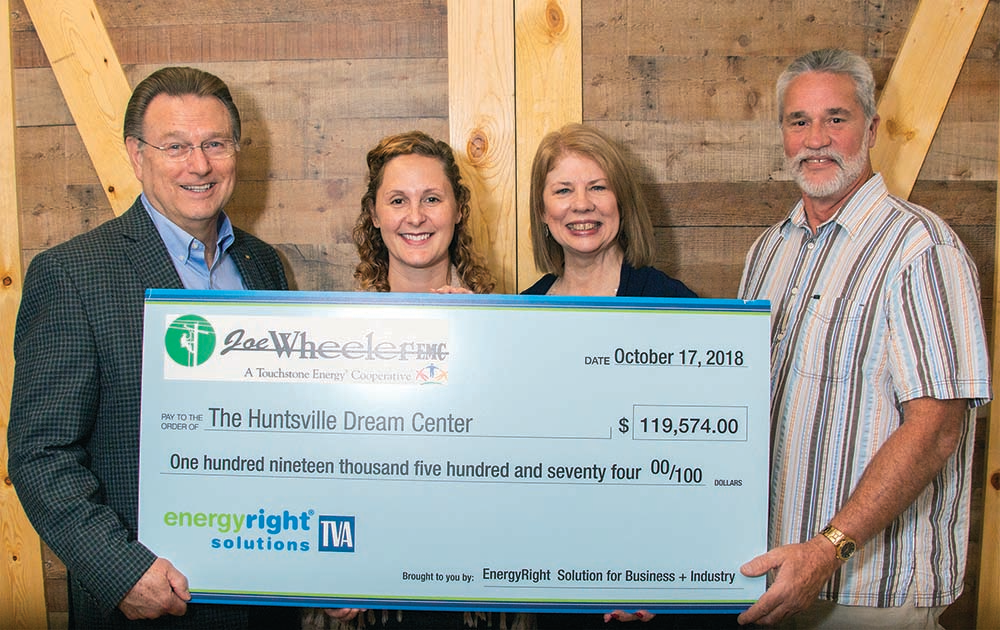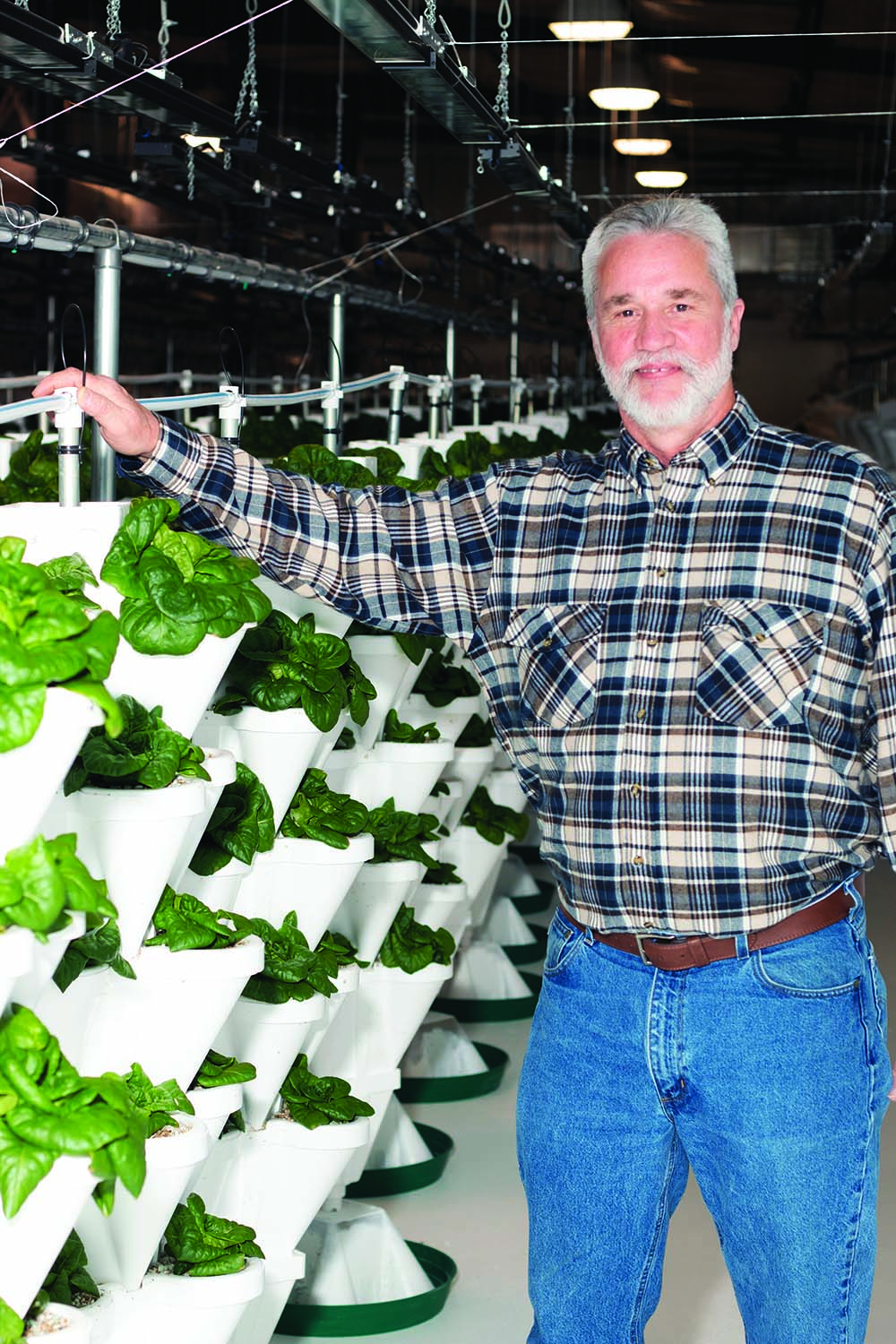
Story and photos by Michael Cornelison
Providing food to a community in need is a challenge the volunteers of Manna House in north central Alabama have been meeting since 2004.
But keeping up with the growing demand for the nutrient-rich, flavorful greens prescribed for those going through medical treatments, like chemotherapy and dialysis, required a new approach, and perhaps a bit of divine intervention.
As the director of Manna House, Fran Fluhler’s mission for the past 15 years has been to make sure the resources to feed those in need are available. While donated food goes a long way toward supplying what’s needed, it’s always a challenge to find a ready supply of fresh lettuce for more than 3,000 salads each week. “It’s expensive to buy that much lettuce, so we decided there had to be a better way to have a more consistent supply at an affordable price,” Fluhler says.
A better way presented itself when their supplier, a grower of hydroponic lettuce in Flatrock, went out of business. As the search for a new supplier started, a conversation with Gary Jordan, a Manna House volunteer and former industrial maintenance technician, led to the idea they could do it themselves.
“When Gary brought it up it was like an answer to our prayers because we needed someone with that passion and desire. He feels called to not only feed people but to teach others how to as well,” Fluhler says. Soon after, Jordan spent a week in Florida at Hydroponic Gardening Bootcamp with Chester Bullock, the owner of Hydrostacker. “Chester has been very gracious, giving his time at no charge to come up and help us get everything started,” Fluhler says.

New life
What they started is Manna House’s Fields of Green Hydroponic Garden. Jordan and his group of mostly volunteer workers have transformed an abandoned machine shop in Lacey’s Spring, a small community in northeastern Morgan County, into a 15,000-square-foot, state-of-the-art indoor hydroponic garden capable of producing around 20,000 heads of lettuce every month.
“We will plant them in a staggered rotation of 5,000 heads harvested each week, giving us a constant supply throughout the month,” Jordan says. Abundant supply is only one of the benefits of the growing system; freshness and flavor are the real advantages.
“We pull the entire plant, roots and all, immerse them in cool water, and deliver them locally within 24 hours,” Jordan says. This method preserves the nutrients in the lettuce while keeping it fresh longer. “The plants are grown in a sterile media within a controlled environment, without being touched by human hands from seed to delivery.”
Everything used in the process is all natural and non-toxic. “You can pick it and eat it right there,” he added.
Not only did they find an affordable location with the room they needed, but there is also a workforce ready to learn a new trade. “We found in Lacey’s Spring a lot of really great, hard-working people who were willing to learn a new skill set for better jobs,” Fluhler says.
Jordan has made training and education part the mission of Fields of Green from the start. “I want to teach people that indoor hydroponic farming is what farms are going to look like in the future,” he says, “and I think we can train people to go into the workforce in this growing industry.”
Their goal is to teach other non-profits, schools and even families to grow food in an economical, sustainable way. When fully operational, Jordan expects to employ as many as 15 local workers.

The power of partnerships
Plants need three things to grow hyrdoponically: water, nutrients, and light – lots of light. When farming indoors, the light comes from electric lamps, which in this case means 1,300 LED fixtures using 105 watts each, equating to an annual usage of around 1.2 million kWh.
To help them figure out the most efficient way to power their new endeavor, they called their local electric cooperative, Joe Wheeler EMC. “We really appreciate Joe Wheeler EMC. They have just been great to work with,” says Fluhler. “We are great at feeding people, but when it comes to electricity, that’s beyond our capabilities, so we called the experts.”
After assessing the electrical needs of the grow house and consulting with Jordan about upgrading to more efficient equipment, Joe Wheeler EMC contacted the Tennessee Valley Authority (TVA), the cooperative’s electricity provider, recommending Fields of Green as an optimal candidate for the EnergyRight Solutions for Business + Industry program. This program offers financial assistance to help reduce the cost of implementing smart energy technologies.
These incentives are provided through local power companies like Joe Wheeler EMC in partnership with TVA. The Manna House project qualified for an incentive payment of $119,574, greatly offsetting the startup cost of the growing operation and helping them get up and running faster.
“Investing in emerging electric technologies can reduce the carbon footprint, increase productivity, enhance brand image and improve bottom lines. Indoor agriculture provides growers the ability to deliver fresh produce year-round in any location,” says TVA Program Manager Claire Jackson.
“TVA’s EnergyRight Solutions for Business + Industry now offers incentives for smart energy technologies that support indoor agriculture. Incentive programs like these can help businesses like Manna House realize their goals,” Jackson says.

Once Joe Wheeler EMC contacted TVA, The Electric Power Research Institute (EPRI) was invited to provide additional support with its past experience, and ongoing research, in lighting, HVAC, water heating, buildings, end-use devices and specifically indoor agriculture, which EPRI has been researching intensely since 2013.
Thus far EPRI has provided Manna House with additional ideas to reduce their energy usage, some suggestions about techniques they may be able to use to maximize or increase their crop yields, and the lab evaluation of the performance and spectral output of the LED fixture used by Manna House to assure compliance with specifications. EPRI’s lab measurements show LED fixtures consumed the power it claimed and had the claimed spectral output with significant portions of red and blue spectrum light being emitted.
The partnerships with TVA, EPRI, and Joe Wheeler EMC are helping Fluhler, Jordan and the volunteers fulfill the original mission of Manna House – to feed those in need. They will be fully operational by the last week of April, supplying the charity with fresh lettuce and selling the rest to local stores and restaurants, raising money to put back into the operation of the garden. The target date for the grand opening of the Fields of Green Garden is the last Saturday in April depending on the current crop development.
For updates and information, visit mymannahouse.com or call 256-653-7883.




